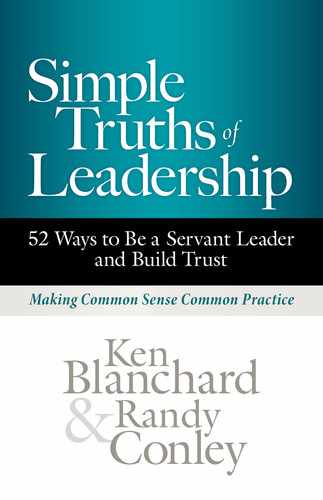When someone breaks our trust, it can be hard to forgive—especially if it was a major betrayal. It’s easy to believe that by refusing to forgive, we somehow hold power over the person who disappointed us. We think our refusal to grant forgiveness will make us feel better because we’re withholding something the other person values and needs to move on—our forgiveness.
But whether or not you choose to forgive won’t change what happened. You can’t revise history to make it better. Choosing forgiveness allows you to reconcile the past with the present. It allows you to let go and move into the future unencumbered from the pain of past disappointments.
MAKING COMMON SENSE COMMON PRACTICE
People have two common misconceptions that hold them back from extending forgiveness to others. Don’t let these prevent you from making this commonsense principle common practice.
• Myth: Forgiving makes you a weakling or a doormat. Wrong. Allowing repeated violations of your trust is never a good idea, but forgiving others while adhering to healthy boundaries is a sign of strength.
• Myth: Forgiveness is dependent on the other person showing remorse. Not true. Whether or not the person who violated your trust apologizes or shows remorse for their behavior, the decision to forgive rests solely with you. Forgiveness can’t be earned by the offender; it can only be given by the offended.
